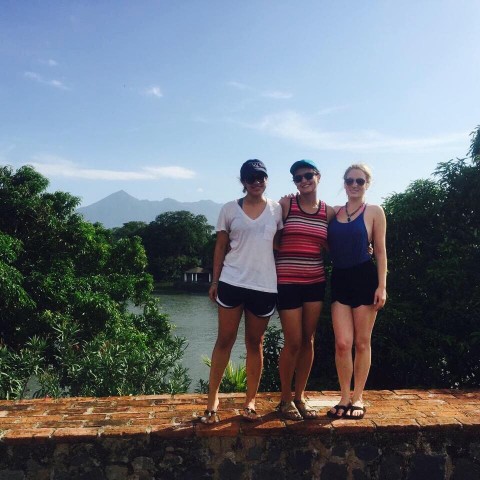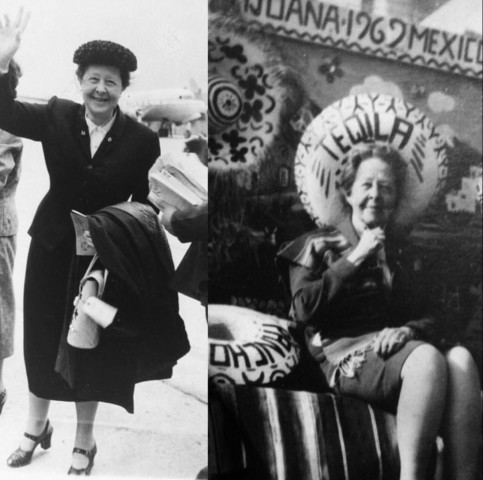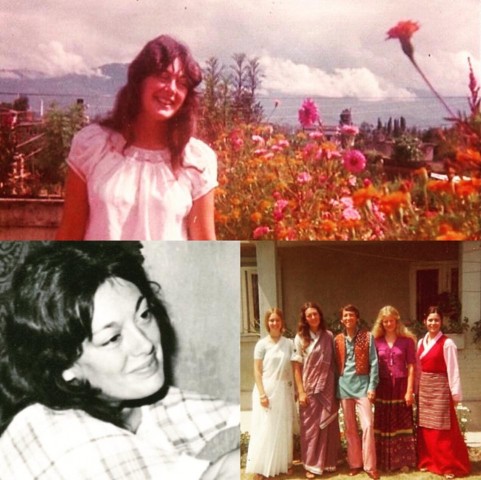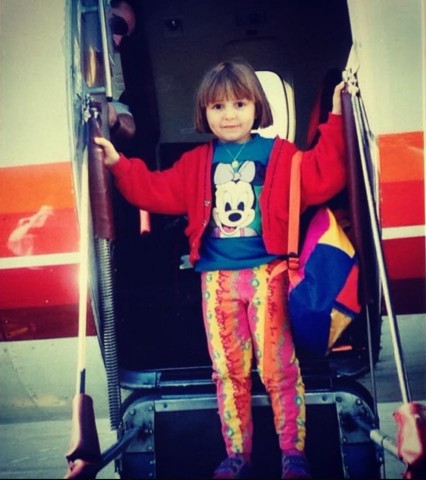Barbara Bergin’s travels to India in 1974. Image courtesy of Barbara Bergin.
“You should focus on your career instead of wasting money on traveling,” my dad has told me.
As the daughter of Mexican immigrants, I know my dad just wants me to be happy and successful.
Each generation has defined happiness and success differently. This is what my college friends and I discussed when we stayed at Paradiso Hostel at the Apoyo Lagoon in Nicaragua.
Since it was their first time in Central America, discomfort easily came up. They loved their visit, but they also felt a bit tense because of what their parents thought about them leaving home. In my case, my dad wants me to focus on my career, and my mom has supported me after seeing that traveling is a career.

My friends and I are in our mid-20s and of Italian, Mexican, Russian, and Pakistani descent. We’ve chatted about how, as part of the Millennial generation, we are “figuring things out.” We live in an economy where it’s more feasible to volunteer abroad instead of buying a house right after high school. We’re quite familiar with Sallie Mae student loans. We are getting married later. We’re exploring our travel options more and embracing safe spaces for female travel.
In any case, my friends and I have clashed with our parents because Millennials are often seen as a wasteful, narcissistic generation.
I wanted to learn from a woman traveler before the days of Facebook and selfie sticks. How does travel for young people today compare to travel when others were in their 20s?
I reached out to my college’s travel Facebook group for contacts. My classmate and fourth-generation Wellesley College graduate, Lucy, responded:
“I can put you in touch with my mom, a missionary in England, Germany, India and Nepal from 1970-1976. She’s Wellesley Class of 1970.”
Lucy’s mom Barbara and I chatted over the phone for 40 minutes. I can still hear her electric laugh. Here’s what traveling in the ’70s was like for her:
Tell me about your family. Did they travel?
“I grew up in Ohio. My parents benefitted [sic] from the GI Bill after World War II. My mother and grandmother also actually went to Wellesley. My grandmother was Madame Chiang Kai-shek’s friend. My grandmother traveled the world every winter in freighters! She’d leave from NYC and go to Hong Kong, Taiwan, the Suez Canal, the Panama Canal, and South America.

When was the first time you left the U.S.?
“In 1966 I was in high school and went to Nicaragua. I went on a medical mission called Operation Brother’s Brother. We gave vaccinations against tuberculosis, polio, and tetanus. We spent three weeks there.
“I remember the smell of the tropics, the poverty, and….the mud!
“I wished I’d stayed. I did love Nicaragua. It was an interesting experience working in public health. Traveling there felt safe. My family wasn’t worried, since I was in a group.”
What was Wellesley College like for you?
“I majored in music. I wanted to make a difference. I graduated in 1970. Wellesley was on strike. It was the same year as the Kent State shooting. It was a very interesting time. People just stopped going to class, so everyone just got a pass or fail grade.
“In May of 1970, I marched with 4 other Wellesley girls on Washington. We hitchhiked all the way there from Boston! It was the summer after Woodstock, and it was a very political time.”
Where else have you traveled, and what did your parents think?
“In 1974 I traveled to India to stay at a Christian Community, called Dilaram (“Peaceful Heart” in Farsi) House, which was run like an ashram. I wanted to go to Kabul, Afghanistan, but I couldn’t because of the war. My dad was nervous, but he said, ‘Well, you’re an adult now, you make your own decisions.’

“Then I went to Katmandu. I ran into some Peace Corps health volunteers near Mount Everest, and they inspired me to pursue medicine [at age 28]. When I told the Wellesley placement department I wanted to pursue nursing, they responded: ‘We’re not nurses, just doctors.’ Only at Wellesley would they say that.”
Have your children traveled?
“All of my 5 children have traveled. We would drive 16-20 hours to Michigan every summer. The older 3 would go with me for the choir tour. Alice and Lucy went on youth mission trips with their church, Alice to Thailand and to the Orinoco River in the jungles of Venezuela. Lucy to Trinidad, twice to Haiti. Lucy went to France with her school French class, junior year in Vienna. Johnny traveled to Europe 6 times before he was 19, as a member of youth orchestras, with his class, and to Vienna to visit Lucy. When he was 5, my mother took our whole family to London for Christmas. Johnny and I went sailing in the British Virgins in 2013.”
How does travel for young people today differ from travel when you were in your 20s?
“Travel is more expensive now than when I was in my 20’s [sic]. There are more people with more money traveling. Many spots that were deserted now have hotels and traffic and lots of regulations about travel. On the positive side, I think there are more opportunities to travel and work. There are more programs and grants.”
How do you think technology (social media, Airbnb, etc.) have affected how we see travel?
“Now we are more in touch because of technology. You can call home. When I traveled, I heard about places and cheap travel by word of mouth. Now, I research on the internet. I like being more in touch, but maybe I worry more instead of just trusting.”
What can Millennials learn from traveling?
“Hopefully anyone can learn that they are not the center of the world. I hope they would learn to make good choices, ask for help when they need it, to be open to new ideas and experiences…and stay safe.”

Based on Barbara’s insight, young people have always loved to travel and longed to see the world. Now, technology connects women of all ages with each other.
My generation, the Millennials, isn’t as used to relying on personal conversations when booking trips or even, sometimes, when traveling on them. Most of our research occurs online, just as I conducted my research — until I called Barbara. When she said “I like being more in touch, but maybe I worry more instead of just trusting,” I wondered: Have we become so attached to technology that we aren’t as trusting with the world around us? Has that contributed to the idea that Millennials are all about themselves?
